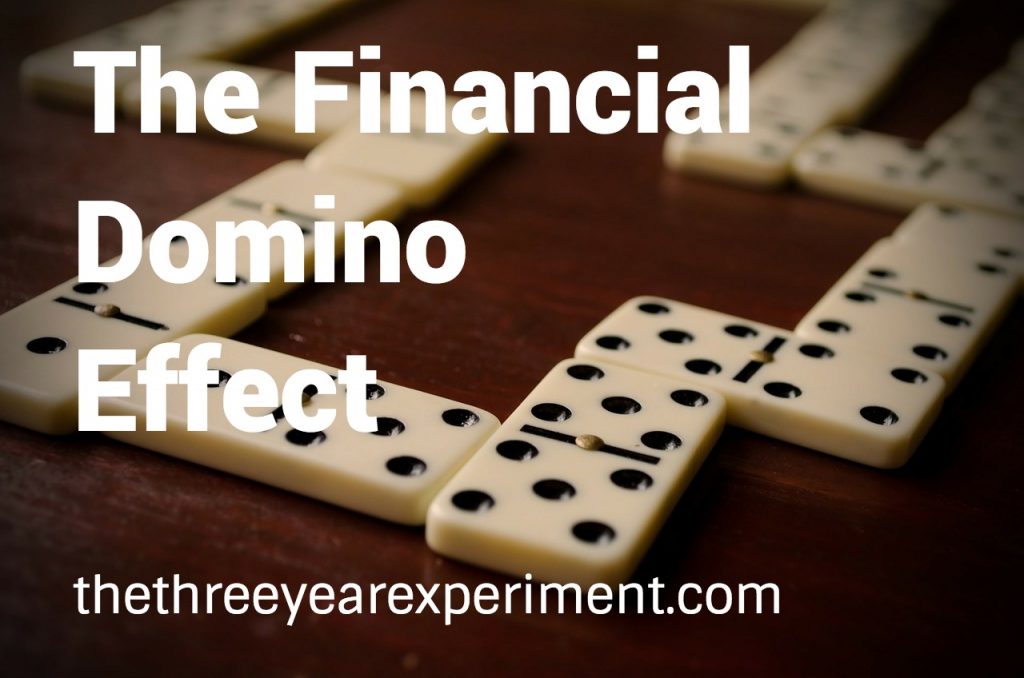Have you ever made a change in your life–maybe a huge one, like getting out of debt, or maybe a small one, like deciding not to buy takeout coffee–that in turn, caused benefits that you never imagined?

Maybe getting out of debt made you realize that your house was too big, so you decided to move into something smaller. Maybe not buying takeout coffee helped you realize you could save in other small areas, and after a few months, you ended up with enough to go on a trip to Florida.
This is the financial domino effect, and it happened to me.
Like a chain of dominoes, where one tile makes the whole line fall down, one seemingly small change in your life creates scenarios that make it more likely you’ll create other small changes.
One action that is, on the surface, completely unrelated to another action, causes the start of a wave of behaviors that can ultimately change your financial life. Continue reading “The Financial Domino Effect”


